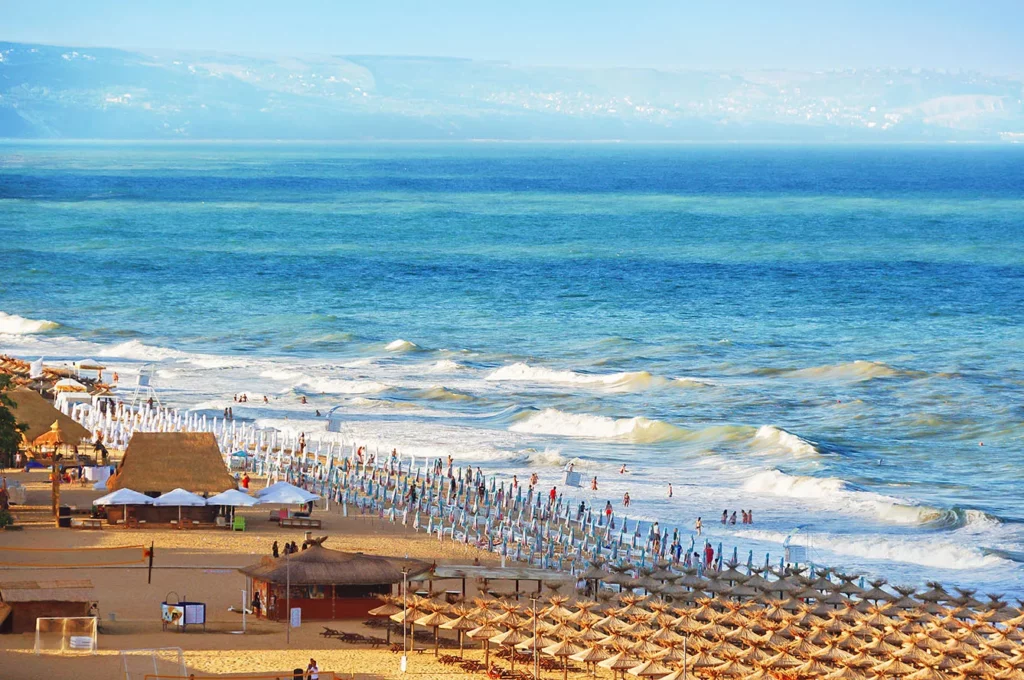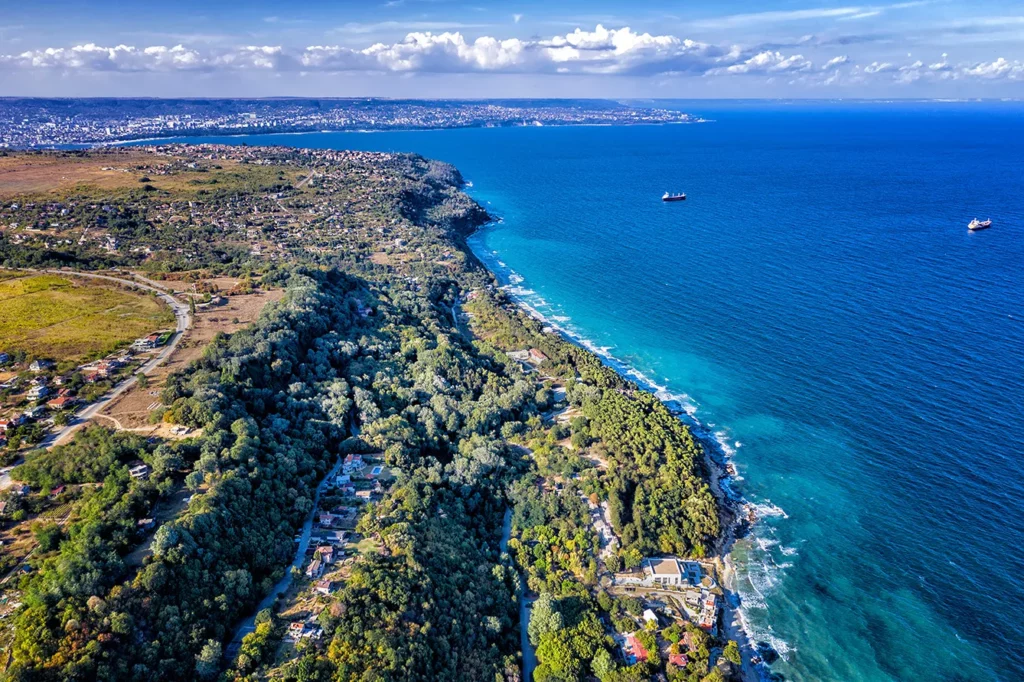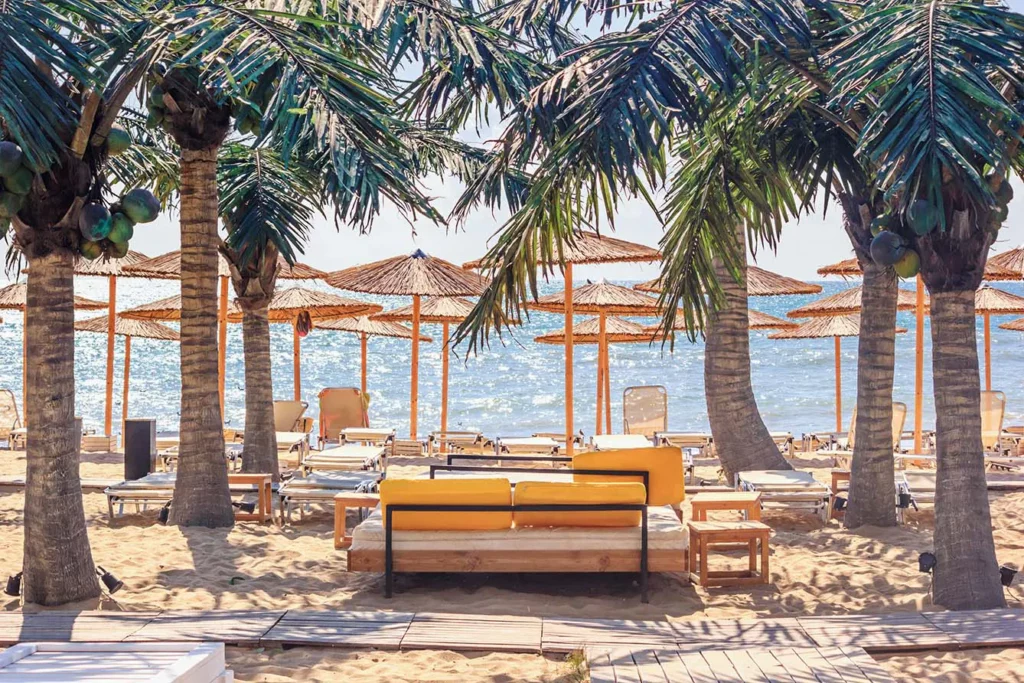In the summer of 2020, with the world closed off to prevent the spread of COVID-19, the news about a plane carrying German tourists to Bulgaria’s Black Sea Coast, something that has been happening for many years, made national news. Accustomed to a high influx of mostly European tourists, Bulgaria was in for a rude awakening.
In 2018, according to OECD data, tourism directly contributed 3.1% to GDP, generating 2.9% of employment and directly supporting approximately 93,000 jobs. Back then, the total number of international arrivals was 12.4 million, an increase of 6.7% compared to 2017. But in 2020, according to data from the World Tourism Organization, Bulgaria welcomed a total of only five million tourists, ranking 38th in the world.
Bulgaria, tourism and COVID-19
In the first year of the pandemic, tourism accounted for 2.1 % of Bulgaria’s GDP. And yet, Bulgaria had been seeing its tourism shrink for years before a global pandemic hit the sector. In 2010, according to one source, tourism accounted for as much as 5.6 % of Bulgaria’s GDP.



As Europe switches to summer mode, is Bulgaria going to see its numbers improve? It depends on who you ask. Ilin Dimitrov, Bulgaria’s outgoing minister of Tourism, is an optimist, expecting a 5% increase in tourists this summer, compared to 2019, the last year before the COVID-19 pandemic. The tourism industry, however, doesn’t seem to share his optimism.
Bulgaria is still struggling to repair its position in the key German market. According to industry estimates, Bulgaria has lost 40% of its German visitors since 2019. While this year, some 15-20% more German visitors are expected in Bulgaria, compared to 2021, the number is still below where it should be, people in the industry believe. In 2019, 630,000 German tourists visited Bulgaria, data from Bulgaria’s National Statistical Institute shows. According to the same source, that number stood at 277,000 in 2022—still, a long way to go.
Difficult Ukrainian neighbor
For many tourists, Bulgaria is a tad too close to Ukraine, one explanation goes. However, proximity to a war zone hasn’t deterred tourists from flocking to Bulgaria’s neighbors to the south: Greece and Turkey. With Greece’s arrivals numbers off the charts last summer, the country welcomed as many as one million visitors a week. For comparison, Bulgaria hopes to fulfill 4.8 million bookings this summer.
Tough competition aside, Bulgaria has been seeing some reasons for optimism in the numbers provided by the World Tourism Organization, which placed Bulgaria among the top ten recovering markets compared to 2019. But for years, however, the tourism industry has also been making the point that Bulgaria needs better brand visibility to stand out in a crowded Southern European market.
This year, Bulgaria is focusing on promotion in 21 key markets, including Germany, Poland, the UK, Romania, and the Czech Republic, but would the same message of discovering a “unique” destination do the trick? This remains to be seen. Meanwhile, Bulgaria’s Ministry of Tourism expects some 65% of the Black Sea coast vacationers to be Bulgarians.
Greek tavern dialect
However, a look at the menu of taverns along the Peloponnese in Greece, often featuring a Bulgarian translation, reveals a different picture. For years, Bulgarians have relied on their neighbor to the south for a high-quality but affordable vacation. “We drove down there for a few days in May, and we barely spoke English. “No worries, I speak quite good Bulgarian,” the Greek waitress told us at the restaurant, and she really did. Same at the grocery store,” Vera Marinova, owner of a translation agency in Sofia, tells 3Seas Europe.
With Greece being the first choice for a vacation, Vera’s family is not overlooking Bulgaria, despite the fact that vacationing in Bulgaria often turns out to be more expensive than a holiday in Greece. “Only we would never go to a resort,” Marinova says. A 2022 poll among 1,400 people revealed that 53% of Bulgarians plan to spend their summer vacation in Greece and Turkey. In the same poll, the share of locals planning a vacation in Bulgaria stood at 20%.
In Varna, Bulgaria’s Black Sea capital, it is especially visitors from neighboring Romania that are giving hopes for a strong season. “We rely mainly on the Romanian market. Next comes the German market and other smaller markets from Scandinavian countries and Benelux,” says Prof. Stoyan Marinov, co-chairman of the Varna Tourist Chamber, quoted by Bulgarian National Radio.
On the ground, in addition to visibility challenges, the Bulgarian tourism sector is also struggling with labor shortages, with hotel owners looking for staff as far as Sri Lanka to make sure guests can receive their beloved Shopska salad on time. Tourism Minister Dimitrov went as far as to point out that Bulgaria trains more cooks than IT specialists, but the reality is that many of them look for job opportunities away from the busy Black Sea Coast.
At the moment, it does feel like both Bulgarian tourists and prospective employees need to pay a closer look at its tourism sector.







